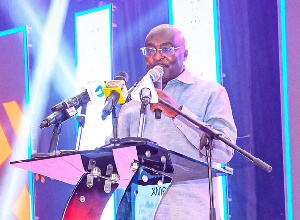- Home - News
- Polls
- Year In Review
- News Archive
- Crime & Punishment
- Politics
- Regional
- Editorial
- Health
- Ghanaians Abroad
- Tabloid
- Africa
- Religion
- Election 2020
- Coronavirus
- Photo Archives
- News Headlines
- Press Release
General News of Wednesday, 13 October 2021
Source: peacefmonline.com
Allowing homosexuals to engage in acts publicly will violate rights of Ghanaians - ASEPA
Executive Director of the Alliance for Social Equity and Public Accountability (ASEPA) Ghana, Mr Mensah Thompson, has waded in the LGBTQ+ debate in the country allowing some selected few to publicly display their affections constitute a violation of the rights of the larger Ghanaians who are heterosexuals.
To him, the LGBTQ+ debate is not about human rights but rather a matter of law and culture that must be respected and adhered to.
The ASEPA boss pointed out that even though the LGBTQ+ issue is not a new phenomenon as homosexuality has existed for many decades, the brouhaha has arisen as a result of the homosexuals and their advocates demanding a right in a Ghanaian society whose laws and culture make homosexuality illegal and a taboo.
Speaking on Okay FM’s "Ade Akye Abia" Morning Show, Mensah Thompson was emphatic that the Ghanaian culture in its natural sense does not even encourage a man to publicly kiss a woman, thus, the issue of a man or a woman publicly displaying affection for the same sex is a nonstarter in the country.
“ . . in this country, even we don’t encourage a man to publicly kiss a woman; it is in recent times that society overlooks this behaviour. Our culture and tradition don’t allow certain kinds of displays to exist between a man and a woman in public then how come some people want to see a man and his fellow man or a woman and her fellow woman to engage in an amorous act publicly which is against our culture and the law? That is a big problem.
The Civil Society Organisation and pressure group Executive Director further opined that the rights of a selected few who claim to be members of the LGBTQ+ community cannot override that of the majority of Ghanaians who see homosexuality as a taboo.
“What the LGBTQ people have to understand is that they are not the only people who have human rights. The rights as enshrined in the 1992 Constitution come with a responsibility and your rights end where somebody’s rights begin”.
“Majority Ghanaians detest homosexuality and because few Ghanaians want to engage in homosexuality we should allow them to do it. So, does it means that the few people want us to allow them to violate the human rights of the majority of Ghanaians who detest homosexuality? The issue of human rights does not come into LGBTQ issue,” he argued.
He, however, applauded the LGBTQ+ Bill for addressing the issue of some people taking the law into their own hands to attack people who are presumed to be homosexuals as that has been the concern of his organization.
Entertainment

Bawumia’s $80 bn market value claim for Spotify, false!
Opinions







